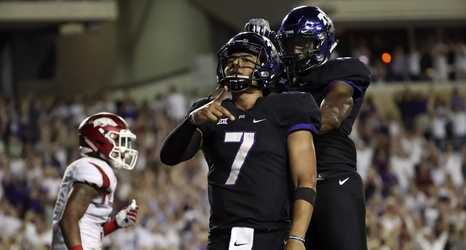Every football game involves controversy, be it referee shenanigans, clock mismanagement, or a turnover bouncing to the opposing team. Often, that controversy plays no greater role in the outcome of the game - an “aw shucks” missed opportunity, and nothing more. Many a time, though, that singular outcome contrives to alter the course of a game, and in doing so, drastically affects a team’s season. Think of the ship out at sea, turned two degrees off-course - that small misalignment results in a drastic alteration of course and a new, unintended direction. As much as rate stats, turnover margins, and isolated points per play can inform and predict the outcome of a college football game, there is a level of randomness outside the realm of quantifiable variation.
TCU Football and Close Games in the Big 12 Era
